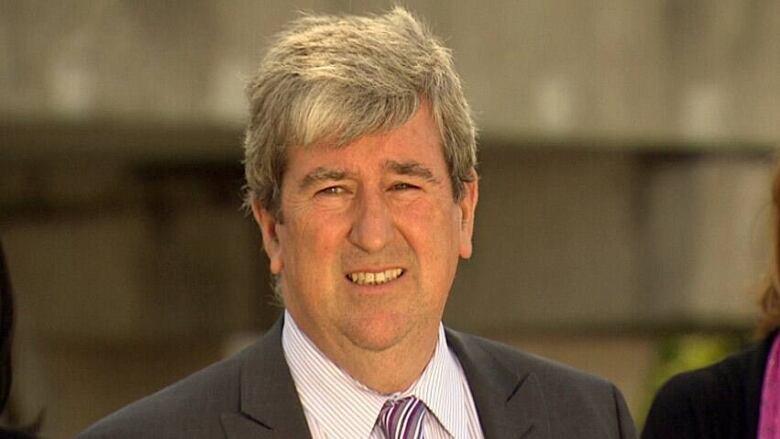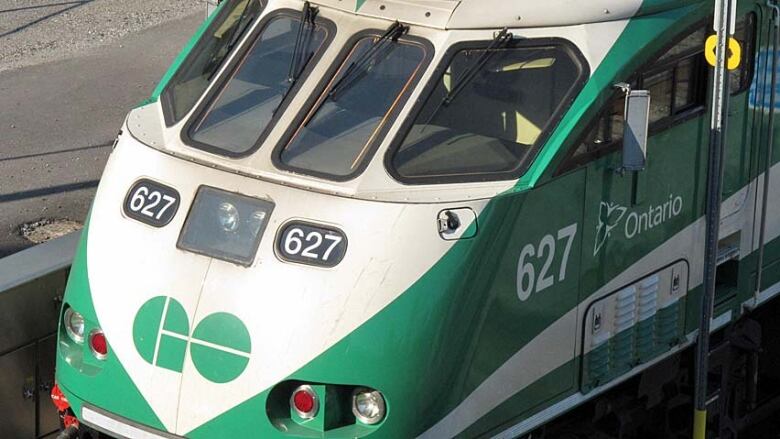Kitchener high speed rail proposal: a reality check

THE CLAIM:
The Liberals are proposing to build a high-speed rail line that would connect London, Kitchener, Pearson Airport and downtown Toronto for in a total trip of 71 minutes.The Liberals say the cost of the project would be between $2 to $3 billion, and could be completed in 10 years.
HOW IT APPLIES TO WATERLOO REGION:
The Liberals are basing their high speed rail plan on a pre-feasibility study they commissioned by independent transportation consultant First Class Partnerships (FCP).
Some of the key points in the consultants findings are listed below:
- A high speed train from London to Toronto would reach top speeds of 320 km/hr, with two trains running an hour all-day from London to Torontos Union Station for a total of 56 trains daily.
- The high speed rail line would attract about 6 million passengers a year, offering both business and economy class fares by 2025.
- According to Glen Murray, who was the minister of transportation until the election call, fares would average $40 from London to Toronto. Its not clear if that cost would include a fare for the Union Pearson Express, the link between Pearson airport and Union Station, slated to open in 2015.
- The net cost to the government for capital investment would be about $500 million, once fare revenues have recouped the investment, though the total cost is not specified.
- The presentation also suggests building GO Regional Express rail, which would include 15-min, 2-way electric service on all lines within 5 years. This rail line would serve Guelph and Kitchener.
The Ministry of Transportation would not provide the full report to CBC News because a ministry spokesperson said it contains confidential information not available to the public. Murray cannot provide the report to CBC because it is considered ministry property during an election.
WHAT OTHER PARTIES SAY:
I think its very clear that Minister Murray is making it up as he goes along. Weve seen promises like this happen in previous elections where people cannot verify reports they are citing from, said Catherine Fife, the NDP candidate for Kitchener-Waterloo.
When Liberals make promises like this during election periods, Ontarians end up paying for it and we say this with the gas plants in the 2011 election, she said.
The NDP have promised two-way, all-day GO service between Waterloo Region and Torontoas part of their campaign platform, and would fund it with an increase in corporate income tax.
Mr. Murrays claims dont add up. He has no idea who will operate this so-called high speed train and he has no idea what the ridership will be between London and Toronto, said Michael Harris, the PC candidate for Kitchener-Conestoga.
Tim Hudak, the PC leader, has promisedall-day, two way GO service, though he said he would cancel plants to electrify parts of the GO network.
WHAT IT TAKES TO BUILD HIGH SPEED RAIL:
Glen Murray told CBC News in an interview that the money to pay for high speed rail was part of the Liberals $29 billion funding plan to build and improve transit and infrastructure in the province.
But Toronto-based transit advocate Steve Munro questions whether the money for high speed rail is part of that funding plan announced in the budget, and if $3 billion is accurate.
My first reaction is that I want to know how Glen Murray has suddenly discovered that he can run trains much more cheaply between Toronto and London than his existing GO transit service or the proposed service between downtown Toronto and Pearson Airport, said Munro.
Thats the first big problem, that we dont have the detailed background information, said Munro, who adds there is no mention of the costs high speed rail in the provincial budget.
Theres the question of the financial viability. Even the report that we do have shows that there is going to have to be some government investment and thats premised on the idea that presumably the line has some positive value, the capital cost would be partly recovered, said Munro. But without the detailed report on how that calculation was done, its very hard to determine how credible that is.
We already know even from the report thats been published, that its a money-losing proposition, he said. Its a question of how much or how little money its going to lose.
Its a question of how much or how little money its going to lose.-Transit advocate Steve Munro
Pierre Filion, an urban planning professor at the University of Waterloo, questions the cost of building a new line between Kitchener and London.
I was rather surprised by the fact that the proposal doesnt use the existing rail corridor between Kitchener and London but rather creating another right of way, another rail corridor for that connection. That will make things more difficult and quite a bit more expensive, said Filion.
"It will probably generate, over the next 10 to 15 years, over $2 billion. So we expect the net cost over the next 10 to 15 years would be about $500 million at least, that's what the experts say," said Glen Murray.
There are also questions over potential ridership.
It doesn't make sense because the market is not there.- Pierre Filion, urban planning professor at the University of Waterloo
It doesnt make sense because the market is not there and it would be too expensive to be able to pay for that service through fares, said Filion.
The problem is that when were talking about 28 trains in each direction between London and Toronto, the London-Kitchener portion doesnt make sense for me, because there arent enough people travelling between London and Toronto to justify that level of service. When we look at the Kitchener-Toronto stretch, maybe.
Murray wasnt able to provide ridership numbers, but referred to the FCP study in terms of diverting traffic from cars to trains.
The study shows that about 20,000 less car trips a day would be made and that three quartersof those, about 15,000 of those, would be people who are already currently commuting on thatroute who are using an automobile. The first thing that people in Kitchener-Waterloo will notice when they get on the 401 once the high speed rail is up is a very dramatic and visible reduction ofautomobile traffic on the highway, said Murray.

The next challenge comes in building the track, or upgrading track that already exists. Currently, GO Transit owns the track from Union Station in Toronto to Bramalea, while CN owns the stretch of track from Bramalea to Kitchener.
That CN mainline sees a heavy load of freight trains along its stretch, so additional track would have to be built along the same rail corridor in order to accommodate high speed trains. Munro says work is already underway to increase the capacity of the line from Toronto to Georgetown, and that there are plans to increase capacity from Georgetown to Kitchener, but it still requires funding.
On top of that, a parallel rail corridor to the one that already exists would be built between Kitchener and London.
According to a high speed rail study that examined building a link between Windsor and Quebec City, commissioned by Quebec and Ontarios ministries of transportation and Transport Canada, the cost of building high speed rail would be approximately $12.8 million a kilometre in 2009 dollars, not including the cost of property acquisition or train cars or planning.
IS HIGH SPEED GOOD VALUE FOR MONEY?
The key thing about very good high speed rail systems is the maintenance. I mean the system has to be maintained virtually perfectly to operate, said Jeff Casello, a professor with the University of Waterloos School of Planning, who specializes in transportation issues.
If the minister is proposing 320 km/hr I would be interested in seeing not only what the construction costs would be, but what the long-term maintenance infrastructure maintenance budget would look like.
Casello also noted that freight trains can do significantdamage to rail tracks, and it's not viable to run high speed trains along the same lines as freight.
"I do think that the likelihood that this will break even from an operational point of view, I think, is pretty small, There are not many examples globally of high speed rail systems covering their operating costs," said Casello.
"The only one that does in America is the Acela on the east coast of the U.S. and that really caters to higher-end busienss travellers and the fares there are much higher than what the minister is proposing."
According to Casello, maintenance costs for high speed rail infrastructure increases exponentially as the speed increases.
Im skeptical of that, Im skeptical of the need for 320 km/hr. The cost to not even construct but maintain the infrastructure is not linear, he said.
THE VERDICT:
High speed rail between London and Toronto is possible, but it is likely to cost more than $3 billion and would take more than 10 years to complete.












_(720p).jpg)


 OFFICIAL HD MUSIC VIDEO.jpg)
.jpg)



























































































